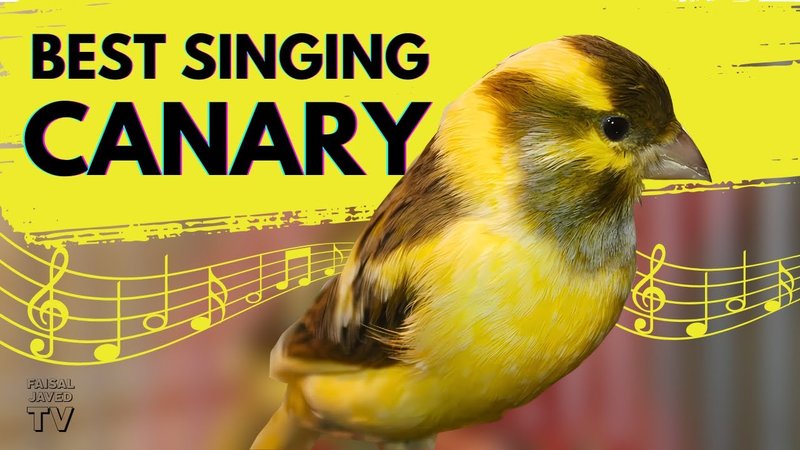
Understanding these vocalizations is crucial for any bird owner. Just like a dog might bark when it’s happy or scared, canaries use their songs and calls to express a range of emotions. Knowing what each sound means can help you ensure your pet’s well-being and happiness. So, grab your coffee, and let’s dive into the fascinating world of canary vocalizations.
The Basics of Canary Sounds
Canaries are known for their beautiful songs, but not all their vocalizations are the same. They have different types of sounds for various situations. Broadly, these can be grouped into three categories: songs, calls, and alarm calls.
– Songs: This is the melodious music that many people associate with canaries. Males typically sing more than females, especially during mating season. Think of it as their way of showing off and attracting a mate. A canary’s song can vary widely, with some developing elaborate melodies, while others might have a more straightforward tune.
– Calls: These are shorter and less melodic sounds that can convey different messages. A canary may use calls to communicate with other canaries in the same space. For example, a quick chirp could mean “I’m here,” letting others know of its presence.
– Alarm Calls: These sounds are essential for survival. When a canary senses danger—like a predator nearby—it might emit sharp, frantic calls. These alarm calls can alert fellow canaries to take cover or become cautious.
Understanding these categories helps you start recognizing what your canary is trying to communicate.
Why Do Canaries Sing? A Look at Their Motivation
You might be wondering, “Why do canaries sing so much?” Well, there are a few reasons behind their musical expressions. Primarily, canaries sing to attract mates. During the breeding season, males are especially vocal. Imagine a bar full of people where guys are trying to impress potential dates with their best dance moves—that’s basically what a male canary is doing with its song.
Another factor is territory. Canaries, especially males, use their songs to establish their space. If another male wanders too close, a canary might increase its singing to claim its territory, much like a person might speak loudly to be heard in a crowded room.
Additionally, canaries sing when they’re happy. You might notice your canary chirping merrily when it’s enjoying a sunny spot or after a good meal. Their songs often reflect their mood, so if your feathered friend is quiet, it might be a sign to check in on its environment.
Emotions Expressed Through Vocalizations
Just like us, canaries have emotions, and their vocalizations offer a peek into how they feel at any given moment. Let’s break down some common feelings and their corresponding sounds.
– Happy: When canaries are content, they usually sing cheerful tunes. If you notice your canary belting out a pleasant melody, it’s likely feeling relaxed and happy. Maybe it’s enjoying its time out of the cage or reveling in a fresh treat.
– Lonely or Bored: If your canary is suddenly quiet or emits low, soft chirps, it could be a sign that it’s feeling lonely or bored. They’re social creatures, and without enough interaction or stimulation, they might express their discontent through their sounds.
– Stressed or Scared: Quick, sharp calls often indicate stress or fear. If your canary is suddenly vocal in a frantic way, it might be scared by a loud noise or the presence of another animal. This is their way of alerting themselves and others to potential danger.
Recognizing these emotional cues can greatly enhance your relationship with your canary and help you respond to its needs effectively.
Vocalization Changes with Seasons
Interestingly, a canary’s vocal patterns can change throughout the year. During spring and summer, you’re more likely to hear a lot of singing. This is their breeding season, and the warmer weather often stimulates their natural instinct to sing and mate. You might be treated to daily concerts as they show off for any potential partners.
Once autumn settles in, the singing might decrease drastically. Male canaries might sing less as the focus shifts from attracting a mate to preparing for colder months. Think of this as transitioning from a summer festival to a quieter winter period.
These seasonal changes can affect your canary’s mood, so it’s helpful to provide extra attention and stimulation during the quieter months to keep your feathered friend engaged and happy.
How to Encourage Healthy Vocalization
If you want your canary to sing its heart out, there are a few things you can do to encourage healthy vocalization. First, make sure they have a calm and safe environment. Birds are sensitive to their surroundings, so a peaceful space can inspire happier songs.
Feeding your canary a balanced diet is also vital. Fresh fruits and vegetables, along with high-quality seed mixes, will keep them physically healthy. A healthy bird is often a more vocal one!
Lastly, consider providing companionship. Canaries are social creatures, so having another canary or providing them with plenty of toys can reduce boredom and encourage more singing. Just like us, a little social interaction can go a long way in lifting their spirits.
Understanding Health Issues Through Vocalizations
Canaries are pretty good at disguising their discomfort, but their vocalizations can reveal potential health issues. If you notice sudden changes in how often or how loudly your canary sings, it’s worth paying attention.
For example, if your usually chatty canary goes quiet or changes its song to something more distressing, it might indicate a problem. It could be something as simple as stress or a more significant health concern like respiratory issues.
Regular check-ups with an avian vet can help you keep an eye on your canary’s health. Also, be attentive to any shifts in behavior; changes in vocalization can often be the first clue that something’s not quite right.
Canary vocalizations are more than just pretty sounds—they’re a window into your bird’s feelings, needs, and overall health. By tuning in to the delightful music they create, you can foster a deeper bond with your feathered friend. Whether they’re singing out joyfully or calling for your attention, listening to their sounds can guide you in providing the best care possible.
So, next time you hear a chirp or a song, pause and reflect on the message behind it. Your canary’s voice tells a story, and with just a bit of attention, you can ensure it continues to sing sweetly in your home for years to come.

